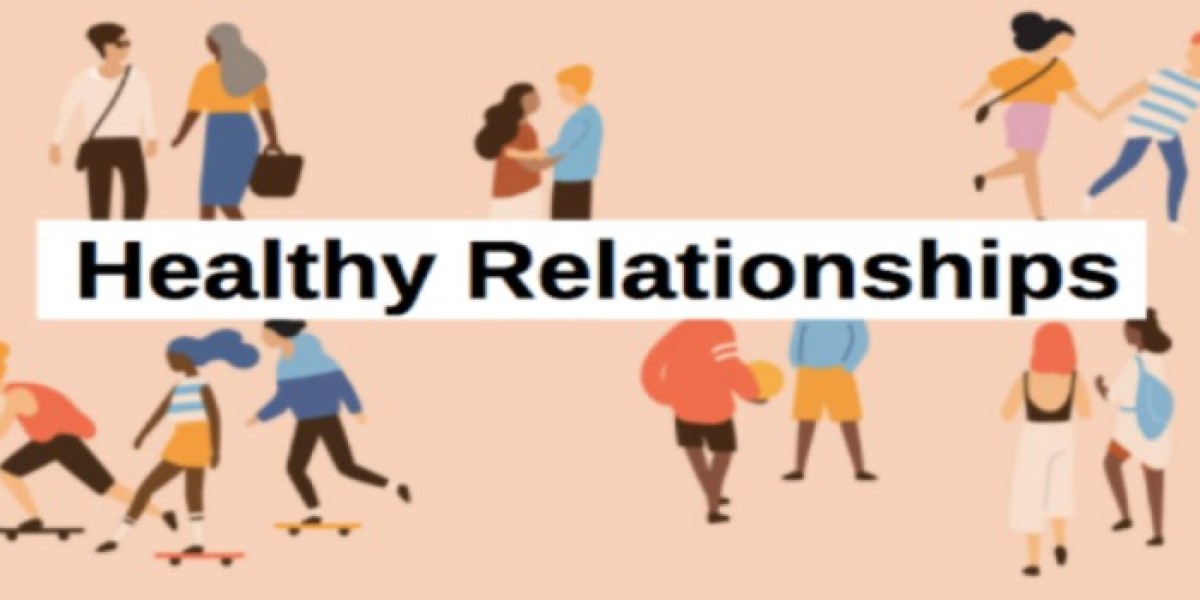Introduction
Healthy relationships are among life's most treasured assets. They provide us with emotional support, a sense of belonging, and an opportunity for personal growth. These bonds can bring immense joy and fulfillment into our lives. In this essay, we will delve into the numerous advantages of a healthy relationship and explore strategies for nurturing and sustaining such relationships over time.
I. Emotional Well-Being
Emotional Support:
A healthy relationship serves as a robust emotional support system. It offers a safe space to express feelings, share burdens, and find solace during challenging times.
Increased Happiness:
Companionship, love, and shared experiences contribute to overall happiness and life satisfaction. Knowing someone deeply cares for you can be a tremendous source of joy.
Reduced Loneliness:
Loneliness can have detrimental effects on mental health. A healthy relationship combats loneliness by providing companionship and a strong sense of connection.
II. Personal Growth and Development
Self-Discovery:
Interacting with a partner often leads to self-discovery. Through this process, we gain insights into our values, beliefs, and desires.
Enhanced Communication Skills:
Healthy relationships necessitate effective communication, fostering improved listening and expression skills. These skills are valuable in all aspects of life.
Conflict Resolution Skills:
Managing conflicts constructively in a relationship can translate into improved conflict resolution abilities in other areas, promoting smoother interactions.
III. Physical Health Benefits
Stress Reduction:
Emotional support from a healthy relationship can significantly reduce stress levels, leading to better overall mental and physical health.
Longevity:
Numerous studies suggest that individuals in loving, supportive relationships tend to live longer and have a higher quality of life.
Healthier Habits:
Partners often encourage each other to adopt healthier lifestyles, including regular exercise, a balanced diet, and better sleep patterns.
IV. Increased Resilience
Coping with Challenges:
A supportive partner can provide comfort and strength during life's challenges, helping individuals navigate adversity more effectively.
Enhanced Emotional Intelligence:
Healthy relationships often lead to improved emotional intelligence, a vital skill in personal and professional life.
Mutual Growth:
Couples who encourage each other's personal development tend to be more resilient as individuals and as a team.
V. Improved Communication
Effective Communication:
Healthy relationships prioritize open and honest communication. This fosters mutual understanding, preventing misunderstandings and conflicts.
Conflict Resolution:
Partners in healthy relationships develop effective conflict-resolution skills, which enable them to address issues without unnecessary drama or tension.
Deeper Connection:
Good communication deepens the emotional connection between partners, making the relationship more fulfilling and enduring.
VI. Trust and Security
Trust:
Trust is a cornerstone of healthy relationships. It creates a sense of security and reliability that strengthens the bond between partners.
Emotional Safety:
Knowing that you can be vulnerable with your partner without fear of judgment or betrayal creates emotional safety, allowing for greater intimacy.
Commitment:
Trust and security contribute to a strong sense of commitment, a vital component for the longevity of a relationship.
VII. Strategies for Making a Relationship Last
Effective Communication:
Continuously work on improving communication skills. This includes active listening and expressing your thoughts and feelings honestly.
Quality Time:
Spend quality time together, nurturing your emotional connection. Make time for shared activities and meaningful conversations.
Conflict Resolution:
Approach conflicts with a solution-oriented mindset. Focus on understanding each other's perspectives and finding compromises.
Maintain Individual Identities:
While a relationship is a partnership, it's essential to maintain your individuality and pursue personal goals and interests.
Express Appreciation:
Regularly express gratitude and appreciation for your partner's contributions to the relationship.
Continuous Learning:
Keep learning about each other's evolving needs, desires, and expectations. Relationships require ongoing effort and adaptation.
Seek Professional Help:
If issues become overwhelming or persistent, consider couples therapy or counseling to address them constructively.
Conclusion
Healthy relationships offer a plethora of benefits, encompassing emotional well-being, personal growth, physical health, resilience, and improved communication. To make a relationship last, prioritize effective communication, trust, and the overall well-being of both partners. A lasting and fulfilling relationship is a continuous journey that requires effort, understanding, and a commitment to personal and mutual growth. By nurturing the connection, learning from challenges, and embracing the benefits of a healthy relationship, individuals can experience the enduring joy and support that these bonds bring into their lives.



